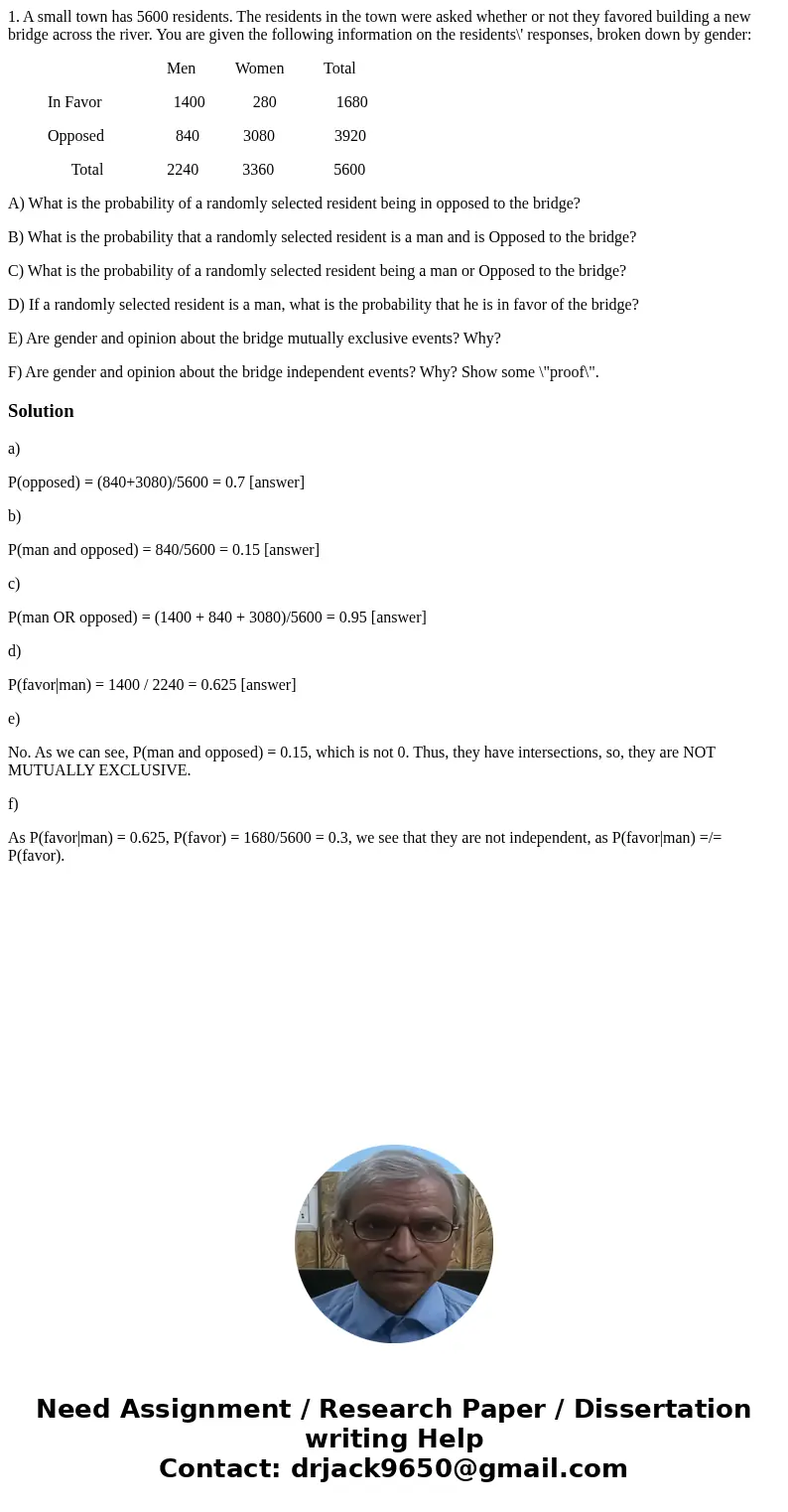1 A small town has 5600 residents The residents in the town
1. A small town has 5600 residents. The residents in the town were asked whether or not they favored building a new bridge across the river. You are given the following information on the residents\' responses, broken down by gender:
Men Women Total
In Favor 1400 280 1680
Opposed 840 3080 3920
Total 2240 3360 5600
A) What is the probability of a randomly selected resident being in opposed to the bridge?
B) What is the probability that a randomly selected resident is a man and is Opposed to the bridge?
C) What is the probability of a randomly selected resident being a man or Opposed to the bridge?
D) If a randomly selected resident is a man, what is the probability that he is in favor of the bridge?
E) Are gender and opinion about the bridge mutually exclusive events? Why?
F) Are gender and opinion about the bridge independent events? Why? Show some \"proof\".
Solution
a)
P(opposed) = (840+3080)/5600 = 0.7 [answer]
b)
P(man and opposed) = 840/5600 = 0.15 [answer]
c)
P(man OR opposed) = (1400 + 840 + 3080)/5600 = 0.95 [answer]
d)
P(favor|man) = 1400 / 2240 = 0.625 [answer]
e)
No. As we can see, P(man and opposed) = 0.15, which is not 0. Thus, they have intersections, so, they are NOT MUTUALLY EXCLUSIVE.
f)
As P(favor|man) = 0.625, P(favor) = 1680/5600 = 0.3, we see that they are not independent, as P(favor|man) =/= P(favor).

 Homework Sourse
Homework Sourse